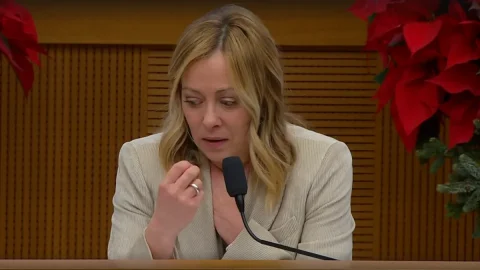There are 4,5 million Italians who have elected social networks as the only source of information. No newspapers, TV or radio. The news can be found on Facebook, Instagram and so on, with all the risks that this choice entails in terms of exposure to fake news which end up influencing their vision of the world and influencing their decisions and behaviour. The danger, points out Attilio Lombardi, founder of Ital Communications, "is that of taking refuge in a sort of closed space in which news is learned only on the basis of one's own tendencies and inclinations, to the detriment of the ability to discern what is happening around we".
This and other data are contained in the Censis-Ital Communications Permanent Observatory on Communication Agencies in Italy. According to the study, 14 and a half million Italians use it Facebook for news, a figure equal to 30,1% of 14-80 year olds and with quotas reaching 41,2% among university graduates, 39,5% in individuals aged between 30 and 44, and 33% of women. Not only that: 12,6% of the population acquires information about YouTube (and the share is 18% among young people) and 3% on Twitter (5% among the youngest).
Huge numbers, on which the pandemic has had a significant impact, which are prompting analysts and ordinary citizens to question the consequences of this reality. Not surprisingly, 55,1% of Italians are convinced that digital technology foments hatred, resentment, conflict, with shares reaching 58,9% among women and 58,4% among young people under 34 ; and 22,6% are afraid of falling victim to haters.
86,4% of Italians, continues the report, know that to get quality information it is better to rely on print and online newspapers, radio and television where professionals work, rather than social networks, where anyone is free to produce and disseminate news. It is no coincidence that 74,5% of Italians think that television is very or quite reliable, while alone 34,3% consider social networks reliable.
According to Lombardi, "the pandemic has plastically highlighted all the advantages of digital technology, while highlighting the danger of getting informed on social networks".
Speaking of the pandemic, the presence of virologists on TV almost splits the Italians in half. The majority (54,2% to be precise) appreciate their interventions, but there are very many (45,8%) who give a negative opinion and think that virologists and epidemiologists have created confusion and disorientation (34,4%) or have even been harmful, because they have caused alarm (11,4%).
Furthermore, according to a recent Eurobarometer survey, 61% of European citizens believe that the most reliable sources of information on vaccines are virologists, doctors and health personnel, but among the no vax the share drops to 32%; 44% of EU citizens rely on what the national health authority communicates, but among the no-vax the share is 12%. 10% of those who are not vaccinated trust websites for information on vaccines and 8% trust social networks against 5% of the population. It is significant that 41% of those who have decided not to get vaccinated do not consider any source of information reliable.





